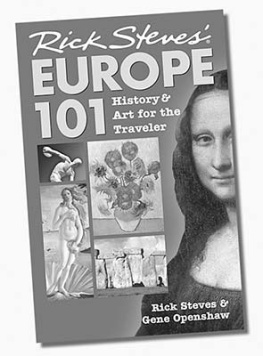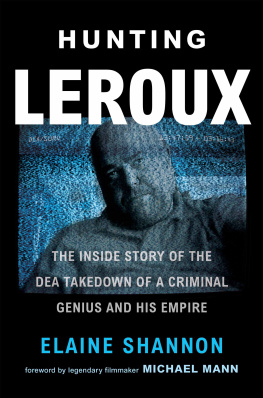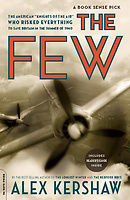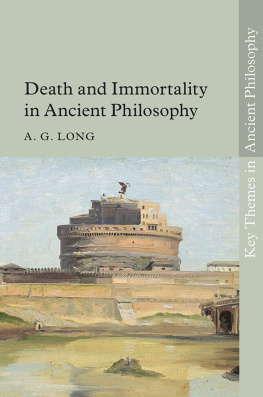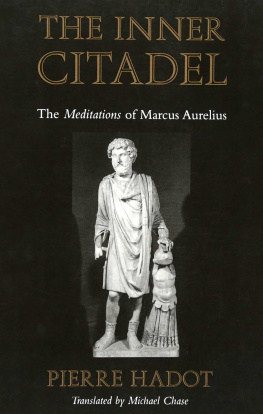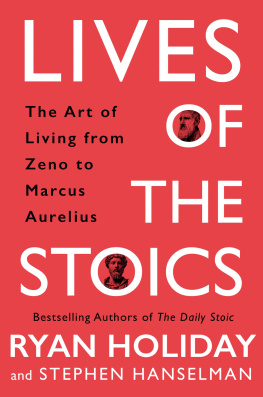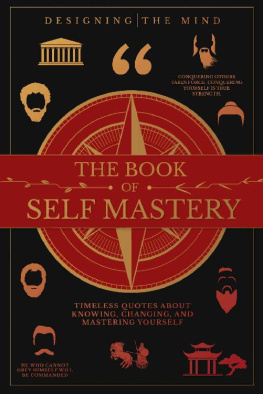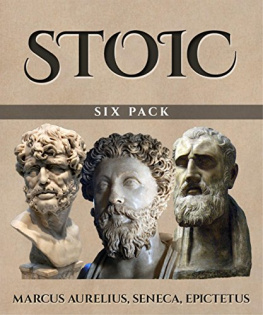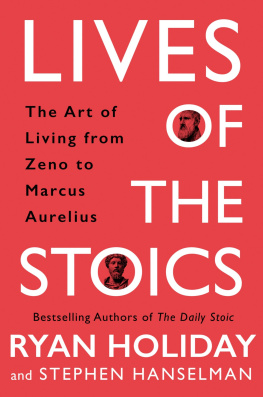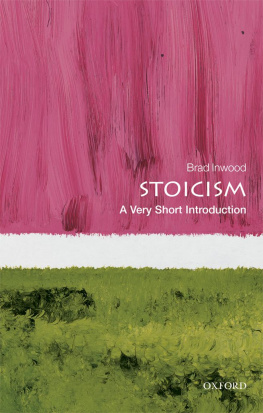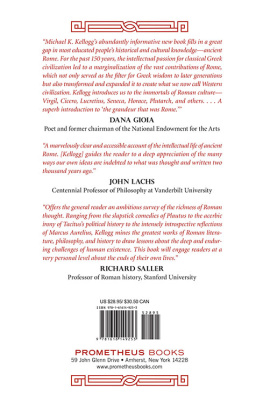The World in a Phrase
A BRIEF HISTORY OF THE APHORISM
James Geary

The Body Electric:
An Anatomy of the New Bionic Senses
Life consists of what a man is thinking of all day.
Ralph Waldo Emerson
Chapter One
Guessing Is More Fun Than Knowing
The Confessions of an Aphorism Addict
IF NOT FOR AN APHORISM by W. H. Auden, I might never have met my wife.
I was in my final year at university, studying a haphazard mix of poetry, philosophy, and literature. Since the college I attended placed special emphasis on the performing arts, I periodically staged little happenings based on things I was writing or thinking about at the time. One of these performances involved lugging about a dozen extremely large and heavy stones into the dining hall during dinner one evening and heaping them into a small cairn. I stood on top of the cairn, tapped a fork lightly on the rim of a glass until I had the rooms attention, and spat a handful of smaller stones from my mouth. Then I lugged the big stones back outside again. It sounds absurd now, but at the time I thought I was making a pretty profound statementin that enigmatic and grandiose way only undergraduates canabout the stubbornness of language, the impossibility of ever really saying what we mean.
It was at a similar event that I first encountered the woman who would become my wife.
For this performance, though, the only thing I carried into the cafeteria was the world itselfin the shape of a desktop globe from which I had neatly excised the Arctic Circle, so that the top of the earth came off like the lid of a cookie jar. I had dropped dozens of little slips of paper into the globe, each one bearing an aphorismeither one I had composed myself or one from a famous writer. As I strolled through the dining hall, I approached people as they ate and asked them to reach in and pick a phrase from the globe. The only catch: Everyone had to read the aphorism aloud. I wouldnt leave the table until they did.
I was an aspiring aphorist at the time, so the globe contained what I considered some of my best lines:
Never trust an animalno matter how many legs it has.
Young people should picnic in active volcanoes.
There are certain mistakes we enjoy so much we are always willing to repeat them.
There is not much room for error in an eggshell.
Not many people live in the desert.
And, my personal favorite:
Sometimes, two goldfish in a bowl are enough.
But the globe also contained lots of great aphorisms from my some of my favorite authors, including this one from W. H. Auden:
Knowledge may have its purposes, but guessing is always more fun than knowing.
My wife-to-bewhom I had never actually met at this pointpicked this saying from the globe and, after some initial hesitation and embarrassment, read it aloud. Then I moved on to the next table and distributed about two dozen more aphorisms before the performance ended.
The next day, I found a little slip of paper in my mailbox. It read:
In some cases, knowing is much more fun than guessing.
That was it. The scrap of paper, torn from a larger sheet, had no name and no other message. But I remembered who had selected the W. H. Auden saying, and later that day spotted my wife-to-be in the hallway on her way to class. I was waiting on the landing for my class to begin and she was walking down the stairs. As she passed, I leaned over the railing and said: Youre right. In some cases, knowing is much more fun than guessing. She blushed a bit, and kept on walking. But that evening, she appeared unannounced in the doorway to my roomand the rest is history.
Aphorisms have changed my life, and not just because I have one to thank for meeting my wife. Ive been inspired and enthralled by aphorisms since I was about eight, when I first encountered the form in the Quotable Quotes section of Readers Digest.
My parents were faithful subscribers to Readers Digest, and I would often find back copies of the magazine lying crumpled and slightly damp on the bathroom floor. Quotable Quotes are brief inspirational sayingsusually by celebrities, television personalities, or statesmen, but often by authors and sometimes by ordinary peoplethat dispense advice about things like overcoming adversity, dealing with disappointment or grief, and coping with family life. This one, by TV counselor Dr. Phil McGraw, culled at random from a recent issue of the magazine, exemplifies the style:
If you marry for money, you will earn every penny.
I was just starting to become a serious reader, so these tidbits were exactly the right length for my preadolescent attention span. At the time, of course, I didnt know an aphorism from an aphrodisiac, but there was something about these brief, unusual sayings that attracted me. I loved the puns, paradoxes, and clever turns of phrase. And I was amazed at how such a compact statement could contain so much significance. Reading a really good Quotable Quote was like looking into a kaleidoscope; after twisting it around in my mind for a while, I was surprised at how many different meanings I could find.
The best quotes were powerful, majestic, inspirational, and faintly oracular. And they were funny, too, even though the topics they dealt with often involved some kind of personal tragedy. These really were words to live by, and when I was about thirteen I started collecting them.
In the beginning, it wasnt immediately clear to me how to collect aphorisms. You either have to have a very good memory or make some note of the sayings as you read them. I opted for the latter method. I took down the poster of George Harrison on my wallthe one from All Things Must Pass with him wearing a big floppy hat and looking very hirsuteflipped it around, hung it back up, and started writing the aphorisms on the back. As a collector, I was very much like the person described by the eighteenth-century French aphorist Nicolas Chamfort:
Most collectors of verses and sayings proceed as though they were eating cherries or oysters, choosing the best first, and ending by eating them all.
My appetite for aphorisms was enormous, so when the George Harrison poster filled up I moved on to David Bowie and Pink Floyd. The collection grew until I was in my early twenties, when I developed a taste for collecting books instead. But the posters still hang on the wall of my study. The paper is browned and cracking now, the corners torn away by attaching and then removing so much cellophane tape. Quotations crowd into every available space. The earliest entries, written in red ink in my neat but jagged teenage script, are so faded with age now that theyre barely legible.
Reading these posters today is like traveling back in time, like leafing through a scrapbook of intellectual snapshots. Each quote triggers a host of memories and associations about where I was when I first read it, what I thought and believed at the time, who I was trying to become.
The George Harrison poster, for example, has lots of extracts from books by Ayn Rand, J. D. Salinger, Kurt Vonnegut, and Henry David Thoreau. This was my alien-hermit phase when, like Thoreau, I would spend long summer days communing with nature and my own socially inept self at my version of Walden Pond in the suburbs of Philadelphia. Pink Floyd sports mostly William Blake, John Keats, Aldous Huxley, Sylvia Plath, and Rainer Maria Rilke, plus a nice little quip from Don Staley, my high school English teacher. This was my romantic-solipsist stage, when my sole aim was to plumb the depths of my emotions and storm the stubborn doors of perception. And Bowie has such heavyweights as Heidegger, Wittgenstein, Kierkegaard, Nietzsche, and the occasional Zen koanmy existentialist-nihilist period, when I rashly imagined Id seen through the world and to prove the point put on philosophical stunts like spitting a handful of stones from my mouth.




